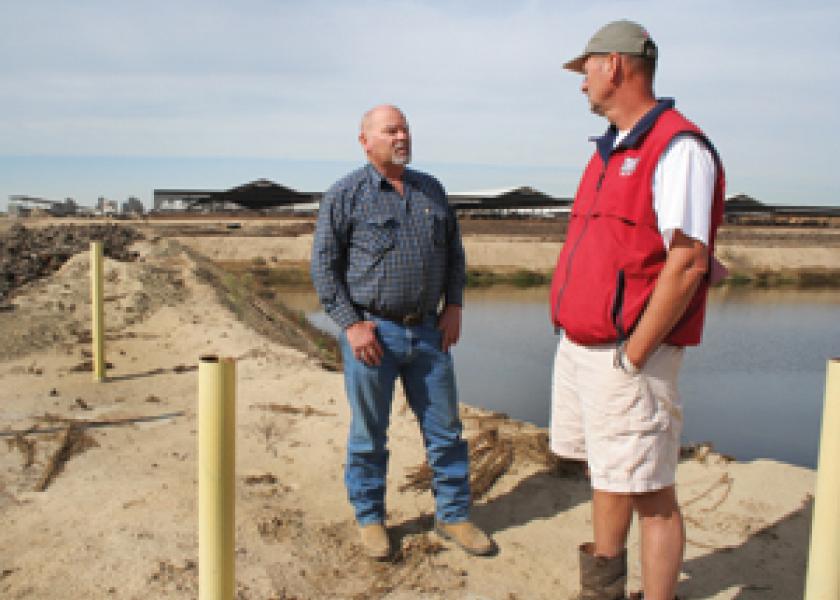Years in the Making

Nitrate in groundwater stems from decades of cropland applications
A landmark study says that more than 90% of human-generated nitrate contamination of groundwater in California’s most productive agricultural areas is from farming activity, including increased manure applications.
On March 13, the University of California, Davis, released the first comprehensive scientific investigation of nitrate contamination in Central California’s Tulare Lake Basin and the Salinas Valley. The study area includes four of the nation’s top five agricultural counties and more than half of the state’s dairy herd.
|
The report says one in 10 people living in the area is at risk of exposure to harmful levels of nitrate contamination in drinking water. Other findings show that nitrate problems will likely worsen for several decades.
Nitrate in groundwater is principally a byproduct of nitrogen use, a key input for agricultural production. Too much intake of nitrate through drinking water can harm human health.
Agricultural fertilizers and animal wastes applied to cropland are by far the largest regional sources of nitrate in groundwater. The report says most nitrate in drinking water wells today was applied to the surface decades ago.
"The situation is historical," says Tom Barcellos, president of Western United Dairymen (WUD). "Practices used today on California dairies are far different than in previous decades or even five years ago, with waste management plans, nutrient management plans, extensive monitoring and reporting to the water board."
California dairies have been tackling water quality issues for more than a decade. In 1998, the California Dairy Quality Assurance Program was created to educate producers about nutrient management. In 2007, the state’s dairies began operating under strict waste discharge requirements (WDR). "We know from data that our WDR compliance is having a positive impact on water quality in the Valley," says Michael Marsh, CEO of WUD.
The Central Valley Dairy Representative Monitoring Program, formed in 2011, is installing a network of monitoring wells on dozens of dairies to ensure producers have the information they need to protect groundwater resources. The cost will be partially offset by a $1 million WUD grant through USDA’s Natural Resources Conservation Service.
"Dairy families are investing in research activities, expending significant capital on infrastructure improvements and developing innovative management practices," Barcellos says.
Preventing and cleaning up ground-water contamination won’t happen overnight, Marsh says. "I’m confident our members [will] do all they can to make sure all folks have access to clean, safe drinking water."







